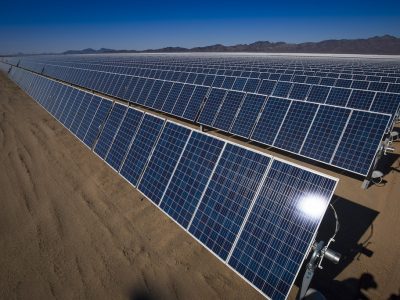New bill in Congress by Rockefeller (S. 3072) would delay regulation of GHGs under the Clean Air Act
As Cara and I have already discussed in detail, the Environmental Protection Agency has committed to delay the rollout of regulation of stationary sources of greenhouse gas emissions under the Clean Air Act, and to regulate only the very largest sources.
This backtracking from EPA has been a response to efforts by Senator Lisa Murkowski and others to strip EPA of its regulatory authority in this area, and also has been an attempt to satisfy more moderate senators from major fossil-fuel energy-producing states that EPA won’t move too fast or too drastically. Apparently, it hasn’t worked: Senator Jay Rockefeller (D – W. Va.) just introduced new legislation that would delay regulation of GHGs from stationary sources for two years. The stated intent behind the legislation is to provide Congress an opportunity to act to regulate stationary GHG sources. Sen. Rockefeller has said that he believes Congress, not the EPA, should determine how best to regulate GHGs. As quoted in the New York Times:
“We must set this delay in stone and give Congress enough time to consider a comprehensive energy bill to develop the clean coal technologies we need.”
He added that decisions with such a broad impact on the nation’s economy and energy future should be made by elected representatives, not bureaucrats.
The delay would provide plenty of time for inaction by Congress. It’s not clear why Congress needs two years to develop regulations, especially since the House has already passed legislation- the Waxman-Markey bill – that would establish a cap-and-trade system for accomplishing this regulatory goal. And if the full Congress fails to pass legislation, or passes weak legislation, we will be two years further down the business-as-usual path, two years later in attempting to find any serious means to reduce carbon dioxide emissions from power plants and other major sources.
The big concern here from the coal-producing states, I assume, is that the regulations that EPA will have to issue if it moves forward under current law would require major GHG sources – such as coal-fired power plants – to implement pollution control at the level of the “best available control technology” (BACT) when new plants are built or when old plants undergo major modifications. In the coal industry, there undoubtedly is concern that EPA would require new plants and major upgrades to capture and store their carbon dioxide emissions, even if that makes building new plants extremely costly or difficult.
It will be interesting to see how this plays out. EPA is clearly on the defensive now, with this two-year delay the lesser of evils compared to the Murkowski bill. But I’m afraid that even the best-case scenario now won’t provide either any meaningful regulation of GHGs from power plants under the Clean Air Act, or any serious incentive to Congress to come up with its own solution, for years to come.
Reader Comments
One Reply to “New bill in Congress by Rockefeller (S. 3072) would delay regulation of GHGs under the Clean Air Act”
Comments are closed.







Sean, thanks for noting this development and linking to the Senate bill. You probably have seen that Nick Rahall (D-WVa) has introduced the same thing on the House side (HR 4753). Interestingly, according to the Washington Post, West Virginia’s other Senator, the redoubtable Robert Byrd, has said that he will not support Rockefeller’s bill. http://views.washingtonpost.com/climate-change/post-carbon/2010/03/byrd_wont_back_rockefellers_attempt_to_limit_epa_power.html